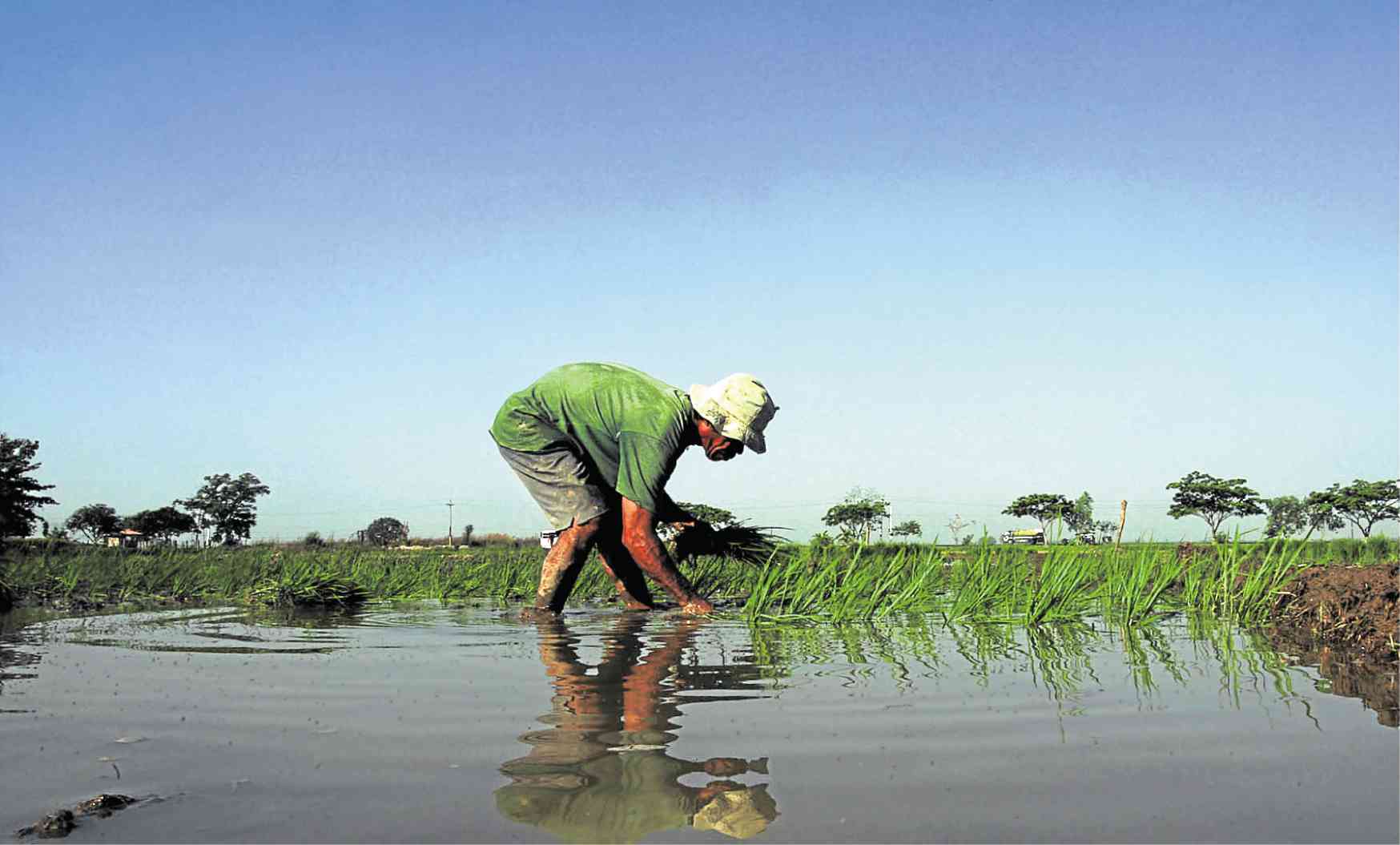Aging farmers worry agri execs

FARM WORK Planting rice is a backbreaking job that has attracted a few takers. – EDWIN BACASMAS
DUMAGUETE CITY — For the past 61 years, Mauro Pino shows up for work every day in a more than a hectare rice field close to the sea at Camp Seasite in Barangay Banilad here.
“I started cultivating this field since I was 14,” Pino told the Inquirer.
He later met and married his wife Leticia when he was in his 20s and this leased farmland supported them and their four sons until their children got married and started having their own families.
Now 75, Pino single-handedly farms his rice field as none of his four sons want to take after the work he inherited from his own father.
Instead of rice farming, his eldest son stays at home and tends to a garden.
Article continues after this advertisementHis second son works as a pump attendant at a nearby gasoline station while his third son is a government laborer. His youngest son drives a delivery truck for a rice dealer.
Article continues after this advertisement“My sons probably want an easy job as they have their own families,” he said.
Pino is a typical example of a farmer in the Philippines, leaving agriculture officials worried.
Bleak
Bernard Limbaga, high-value crops coordinator of the Provincial Agricultural Training Coordination Office of the Department of Agriculture in Negros Oriental province, said the outlook for Philippine agriculture looked bleak.
“Nobody is attracted to farming anymore so instead of training young farmers, our office just helps senior citizens,” Limbaga lamented in a recent forum.
Citing recent studies, Limbaga said due to their old age, today’s farmers were not anymore open to new technology.
The recent decision of the Duterte administration allowing the importation of rice from neighboring countries may also hurt local farmers, he said.
Farmers abroad can produce a kilogram of rice for P7 but in the Philippines, one needs at least P15 to produce the same amount of rice, he added.
Limited farming space
“This is because of the lack of mechanization and the high labor cost,” Limbaga said.
Compounding the problem of fewer farmers is the dwindling agricultural space due to urbanization. Dumaguete City, with a 35-square-kilometer land area, has only 10 percent left for agriculture.
Unless this trend is reversed, Limbaga said the country could become like Singapore, which could no longer produce its own food.